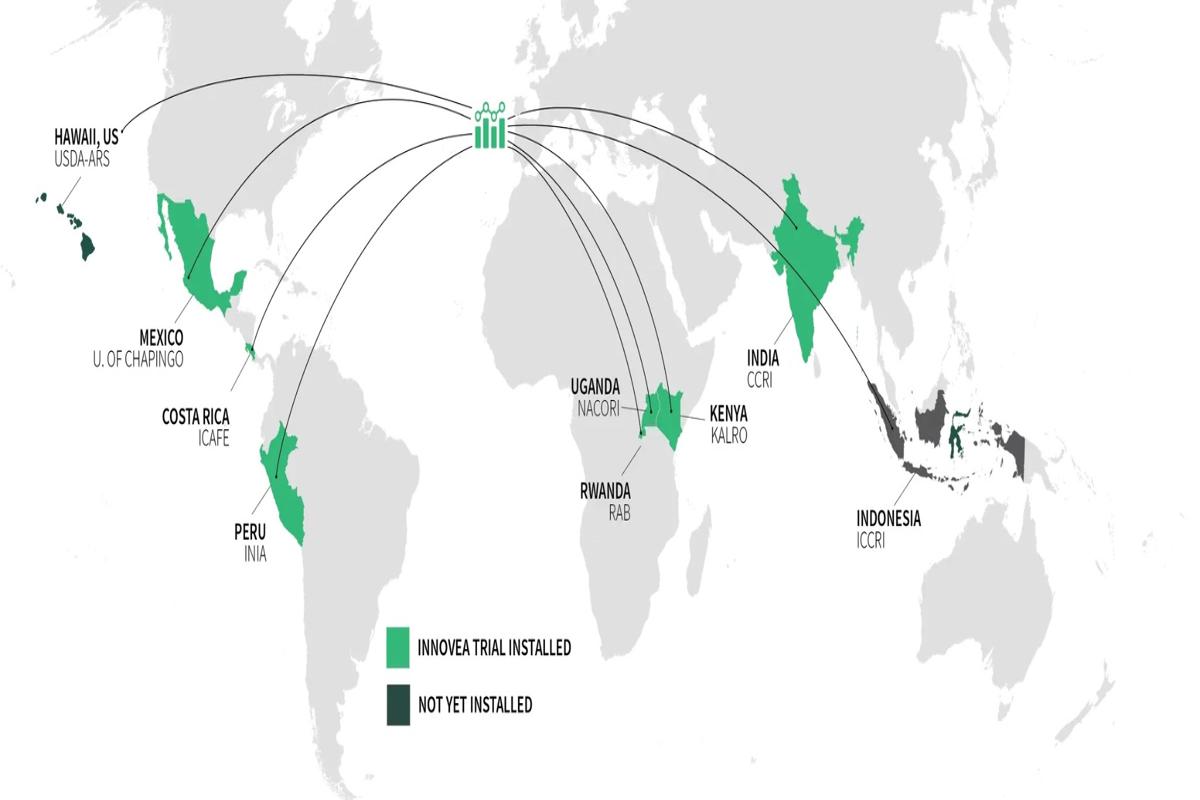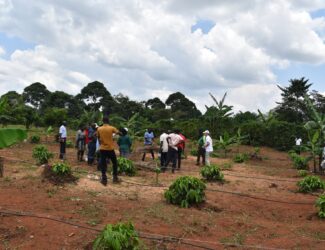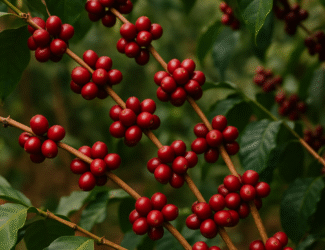
Innovea Global Arabica Trials Advance in Seven Countries, Paving the Way for a New Era in Coffee Breeding
By the end of 2024, a major milestone was reached in the global coffee sector: six countries successfully installed the first field trials of the Innovea Global Arabica Breeding Network, marking a transformative step toward the future of coffee genetics. These trials bring to life the long-planned vision of accelerating genetic innovation in Arabica coffee and addressing critical challenges such as climate change, disease resistance, and the preservation of origin-linked diversity.
The installed field trials represent the foundation for developing market-responsive, high-performing coffee varieties tailored to local needs. Each tree planted in this initiative is part of a scientifically designed population that carries never-before-accessible genetic diversity—unlocking possibilities for coffee-producing countries to breed more resilient, productive, and high-quality varieties.
Across these six pioneering countries—Costa Rica, Mexico, Peru, Uganda, Kenya, and Rwanda—partner institutions have installed the trials in 2024. India is expected to complete installation by the end of the year, and an eighth country will follow in 2025. In total, over 5,000 trees have been planted under the Innovea program. Over the next six years, comprehensive performance and genetic data will be collected from each tree to assess its potential for inclusion in future breeding and variety release programs.
Costa Rica’s Instituto del Café (ICAFE) was among the first to install its trial in May 2024. Shortly after, the University of Chapingo in Texcoco, Mexico, followed in November. Peru’s Instituto Nacional de Innovación Agraria (INIA) completed its setup in December. Meanwhile, the National Coffee Research Institute (NaCORI) in Uganda and the Kenya Agricultural and Livestock Research Organization (KALRO) both launched their trials in April. Rwanda’s Agriculture Board (RAB) completed its installation in March, and India’s Central Coffee Research Institute (CCRI) finalized its participation in December.
Each participating research institution is not only planting trees but contributing to a collaborative global dataset that will drive the next generation of Arabica breeding. Unlike traditional regional approaches, Innovea’s international network enables a shared scientific platform that facilitates cross-country learning, faster innovation cycles, and localized adaptation—all while maintaining a focus on quality, sustainability, and resilience.
The Innovea network now spans nine countries, uniting breeders, scientists, and policymakers in a collective mission to future-proof Arabica coffee. As global demand for coffee continues to grow and climate pressures increase, such innovations are vital for ensuring that coffee producers remain competitive and sustainable.
This unprecedented collaboration reflects a shift in how the coffee sector is approaching innovation—prioritizing shared knowledge, inclusive access to genetic resources, and a science-based response to the complex pressures facing modern coffee agriculture.
As the trials grow and data collection continues through 2030, the global coffee community will watch closely to see which promising varieties emerge—potentially reshaping the genetic landscape of Arabica coffee for decades to come.






